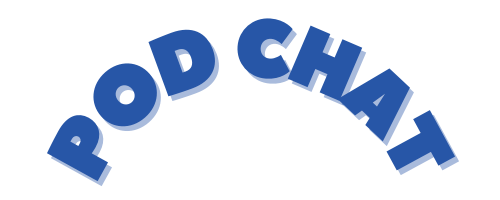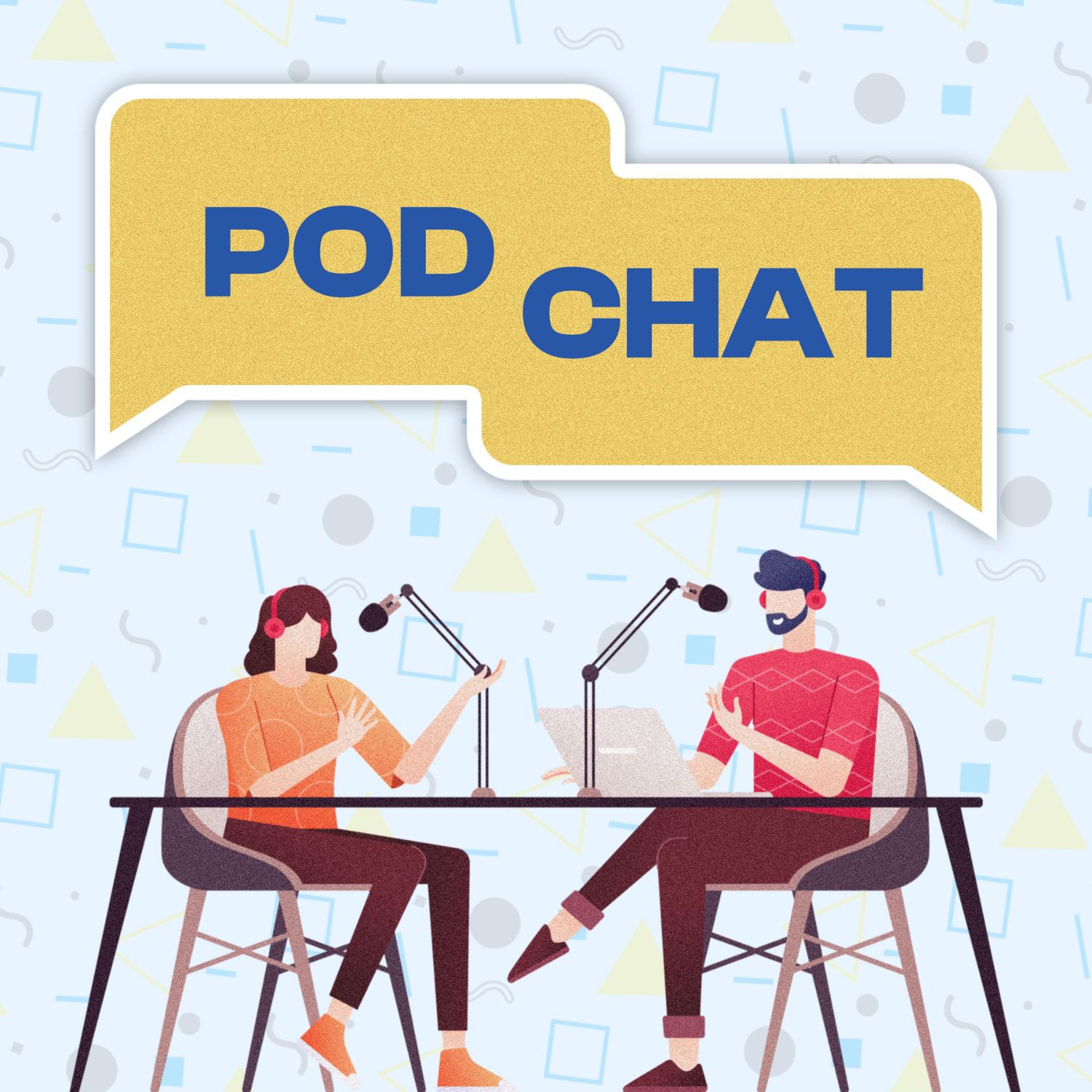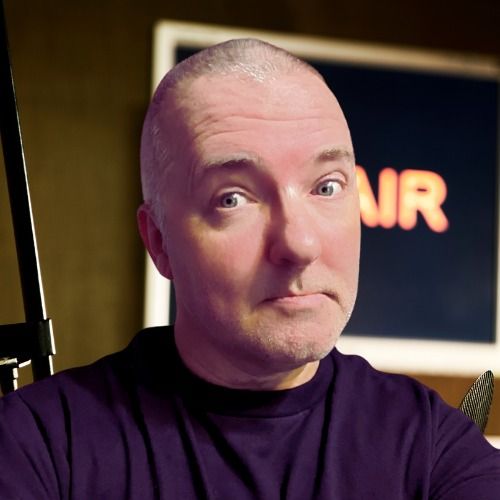Episode 19
Lets Talk About Podcasting Myths
For the last 14 years, I’ve been involved in podcasting. Okay, that’s not quite correct - I published my first podcast episode back in 2009 on BlogTalkRadio, but then didn’t record anything else until 2016. So, technically, I’ve been in the space for the last 7 years - my bad!
Over that time, as podcasting has grown in popularity both for podcasters and listeners, it’s safe to say that growth has also attracted the usual crowd of experts and gurus that offer their “expertise”, usually for a large sum of money, to unsuspecting podcasters looking to grow their show(s) and enjoy whatever modicum of success they’re looking for.
Now, that’d be fine - after all, everyone deserves to make a living. But, sadly, a lot of the advice given is misunderstood at best, and outright shilling at worst, where they just want to make a quick buck out of a new and eager audience.
So let's bust the myths that these "experts" shill.
Support the show: Become a Premium Member for ad-free early access, exclusive live streams, and more.
Contact me: danny@dannybrown.me
Products I use for Pod Chat
Note: these contain affiliate links, so I may get a small percentage of any product you buy/use when using my link.
My equipment:
- Shure SM7B dynamic mic
- Rodecaster Pro II production studio
- Sony MDR-7506 Studio Monitor Headphones
- Elgato Wave Mic Arm Low Profile
Recommended resources:
Mentioned in this episode:
Enjoy Pod Chat? Leave a review or rating on your preferred app and show the world you care!
Did you know every time Pod Chat gets a new review, a baby podcaster takes their first steps? Help a baby podcaster walk today, by leaving a 5-star rating or review on the likes of Apple Podcasts, Spotify, and more. Just head on over to podchat.ca/review and do your magic - these little feet are counting on you!
This podcast uses the following third-party services for analysis:
OP3 - https://op3.dev/privacy
Podtrac - https://analytics.podtrac.com/privacy-policy-gdrp
Transcript
Hi. This is Danny from Pod Chat. If you enjoy the show, but wish you didn't have to listen to ads like this. Well, now you don't have to. Instead, for a small monthly or annual subscription, you can get the ad free version of the show by going to Podchat.ca/Bonus and choosing your preferred option. You also get early access to every episode before anybody else, as well as some other cool exclusives. So head on over to Podchat.ca/Bonus and get all this good stuff today.
Danny:For the last 14 years, I've been involved in podcasting. Okay, that's not quite correct. I published my first podcast episode back in 2009 on Blog Talk Radio, but then didn't record anything else until 2016. So technically, I've been in this space for the last seven years. My bad. That's both as a podcaster, someone creating podcasts for others, either through the agency I used to work at or my own freelance stuff back in the day, or as Head of Podcaster Support and Experience at Captivate, one of the leading podcast hosting, distribution, analytics and growth platforms in the industry.
Danny:Over that time, as podcasting has grown in popularity, both for podcasters and listeners, it's safe to say that growth has also attracted the usual crowd of experts and gurus that offer their expertise, usually for a large amount of money, to unsuspecting podcasters looking to grow their shows and enjoy whatever modicum of success they're looking for. Now, that'd be fine. After all, everyone deserves to make a living. But sadly, a lot of the advice given is misunderstood at best and outright shilling at worst, where they just want to make a quick buck out of a new and eager audience. The latter example I have zero time for.
Danny:The former, however, the misunderstood advice can often be traced back to something the person might have heard at a conference or read online, or even heard in a podcast episode. And while it's possible there may have been some truth at that time, things move fast in podcasting, and you've got to make like Ferris Bueller to keep up. So let's talk about these podcast and misunderstandings. Specifically, the most popular ones have essentially turned into myths. I asked some podcasters on Twitter to share some of theirs too, along with their take where applicable, and I'll share these in this episode.
Danny:Myth number one: it's all about the downloads. Probably one of the most popular myths is that for any show to be successful, it's all about the downloads. It usually goes something like this: your show isn't successful if you're not getting 10,000 downloads per episode in the first 30 days. Your show isn't worth sponsoring without these kind of numbers. If your show isn't hitting thousands of downloads every episode, then podcasting might not be your thing. No one takes a podcast seriously if it's not hitting hundreds of thousands of downloads. These are just some of the sound bites I've either seen online myself or watched others ask on places like Reddit if this was the case. And if so, should you give up now? And that's the part that really sucks, because so many new podcasters are getting put off before they've even started by believing they'll be a failure if the show doesn't hit some form of magic target.
Danny:Now, in fairness, if you want to use ads as your main form of revenue for your podcast, then higher download numbers are important, since ads tend to use the cost per mille CPM model. This means cost per thousand listeners. So the more downloads you have, the more listeners, the more listeners, the more ad partners will pay you. Also, you can't have listeners without downloads and without listeners, then you'd be talking to yourself, which is fine, but there are easier ways to do that than podcast. But to say a podcast success is dependent on download numbers is wrong, because no one but the podcaster knows what success means to them. Additionally, you can have a hugely successful podcast with low download numbers.
Danny:A hyperlocal podcast might only have 100 listeners, for example, but to a local business that might want to sponsor that's 100 highly engaged potential customers. A super niche podcast with dedicated fans is a far more attractive proposition to sponsors than a generic podcast with fairweather listeners. A podcast that helps someone through their mental health issues is more valuable than any ad revenue could offer. And a small podcast that acts as a big lead driver for a small business is super successful when their growth goes over. On Twitter, there was a similar consensus. Harry Duran said CPM is the best model for sponsorships, not. And as Mark Evans says, streams and downloads pale in comparison to making new relationships, extracting lots of evergreen content, and building brand awareness.
Danny:The Global Discussion: myth, bigger numbers and metrics are always better. Reality, 100 of the right audience listeners is more beneficial than a thousand listeners who listen to part of an episode and don't continue their support or interest. So yes, while downloads are the starting point of a podcast success, they're not the definitive one.
Danny:Myth number two: anyone can podcast. I saw a post on a Facebook podcasting group where the question was along the lines of what makes a podcaster a podcaster and is it just speaking into your mic? I paraphrase, but you get the gist. It wasn't a question that stood out for me, but the use of the word just because that suggests podcasting is as easy as speaking, recording what you speak and publishing. And at its core, that's exactly what podcasting is: recorded spoken words that are shared with others either via podcast app or a podcast website. But to say this is just what a podcaster is kind of negates a lot of what else goes on. And in fairness, the poster of the question did expand on these other things as well.
Danny:As well as the voice behind the show, a large majority of podcasters are also researcher, planner, analyst, producer, editor, marketer, designer, website builder, tech support and social media community manager. That's a whole lot of responsibilities to take care of. And yes, you can outsource the tasks that you're not comfortable with, but that's extra outlay that you may not have, so then it falls back on your shoulders. Back to the podcasting side of things. For this myth, yes, anyone can podcast, and it's been made easier by newer platforms that remove a lot of the technical jargon that podcasting might rightly or wrongly, be known for. And that's great to see. But to ensure you get past that reported "many new podcasters don't even reach episode six" statistic, you need to have a plan on why you're podcasting, what you want to achieve, what you need to do that, and how you're going to see things through for the long haul.
Danny:Because unlike Field of Dreams, listeners won't come just because you built it. And that's where the hard work begins. Over on Twitter, the global discussion said myth two anyone can be a podcaster. Reality anyone can probably launch a podcast, but few can produce a consistent podcast that lasts more than a few episodes. Craig from WhitsTheScript, it's a complete myth that all your family and friends will listen, like, share or comment. They'll join a page or follow you on social media, but that's where the support stops. Sorry, these be facts. Bill Shaw, a podcast with a few people sitting around a microphone and chatting for 50 minutes. So for sure, anyone can podcast. And I highly encourage everyone to try and dip your feet in. Just be aware there's a little bit more work involved than just speaking into a mic.
Danny:Myth number three: you need the most expensive equipment. Being an audio first medium, how your podcast sounds is key to growth. While great content is obviously important, it won't matter much if it sounds like it's being recorded in a wind tunnel with lots of echoes and bumps, et cetera. So investing in the right equipment is key. However, despite a lot of experts saying you need to buy top of the range gear, this isn't the case. Instead, the most important thing when it comes to your audio quality is your recording environment. It doesn't matter if you have a $400 mic like the popular Suhre SM7B, or a studio quality piece of kit like the RODECaster Pro Two. If the space you're recording is bad to start with, no amount of high quality kit will make it sound good. Indeed, even with lower priced mics and recording tools, you can get a great sound and podcast if you start off with a good recording space.
Danny:That means removing hard surfaces where sound bounces, which is what causes echo, not recording in a large empty room, and learning good mic technique to reduce the space between your mouth and the mic, which is where some of the bad audio you hear in podcast comes in. The good news is you don't need to spend a lot of money on sound treatment solutions. Though if you have a budget, it's definitely worth it. If you do have a lot of hard surfaces, so bare walls, hardwood floors, lots of windows, et cetera. you can remove the harshness of the room with stuff you probably already have lying around your home cushions, soft furniture, maybe a chair or futon, moving blankets or thick curtains and drapes covering the walls, closing the curtains, blinds and the windows before recording, canvas pictures on the wall. Even making some changes to your room will make an immediate difference to your audio, without needing to spend lots of hardware in the hope that will improve your audio.
Danny:Some of the podcasts I listen to sound amazing and I know from the podcaster are sharing their equipment set up online that they're using $50 mics, but you definitely can't tell. So start off the right way and the equipment won't matter as much. Over on Twitter, RetroStatic Radio says the biggest myth, I think, is equipment makes a sound when it's basically just a simple understanding. And 2 Guys 1 Mic made me laugh with their mention that recording in a zoo is an unsuitable podcast studio. So as you can see, there are lots of myths out there and many of them can either put new podcasters off or lead them to give up before they've truly got started. And that's a shame since we could be missing out on some of the best podcasts you've ever heard.
Danny:So as an industry that's generally really supportive, let's continue to bust these myths and help podcasters get the best and most useful one for they can by recommending people you can trust to them when they need to hear the right advice.
Danny:Did you know every time Pod Chat gets a new review, a baby podcaster takes their first steps? Help a baby podcaster walk today by leaving a five star rating or review on the likes of Apple Podcasts, Spotify and more. Just head on over PodChat.ca/review and do your magic. These little feat are counting on you.


